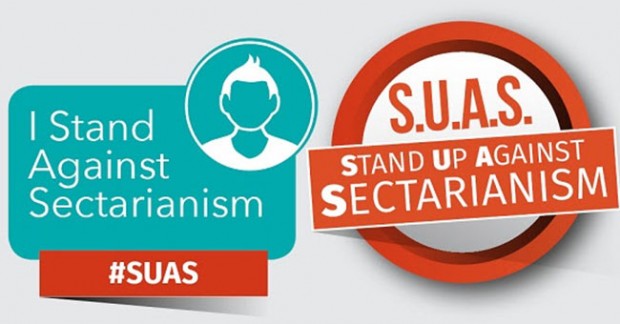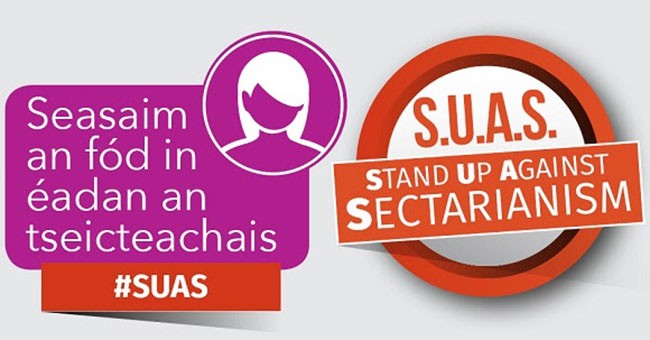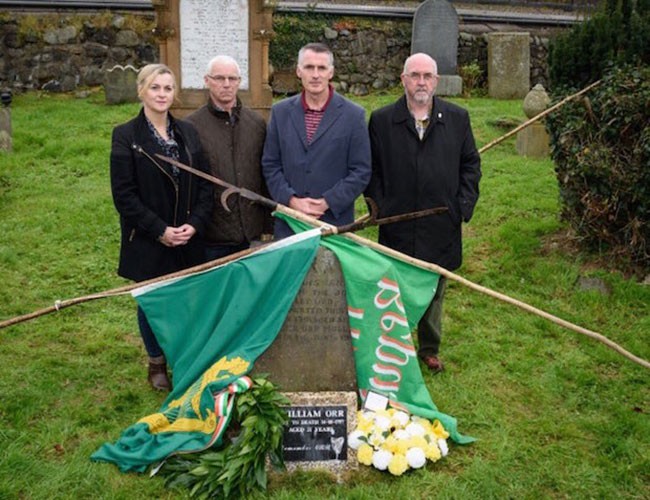27 November 2017 Edition
Sectarianism – Time to push that elephant out of the room

Sectarian attitudes are the most incendiary catalyst for violence now and in the future
ON 14 OCTOBER, I and other republicans commemorated the execution of William Orr, 220 years ago to the day, at a little graveyard in Templepatrick, County Antrim.
William Orr was a United Irishman from nearby Farranshane. His memory has been immortalised to this day with the refrain “Remember Orr!” – the battle cry used to rally the United Irishmen and women during the 1798 Rebellion.
Orr was one of a group of famous United Irishmen and women with very local associations to County Antrim, including Roddy McCorley, Jemmy Hope, Henry Joy and Anne McCracken.
All of them continue to be remembered to this day in song, poetry and prose.
During the H-Blocks Blanket Protest, Bobby Sands penned a powerful poem Rodaí Mac Corlaí. It is based upon the stories told by local POWs about Roddy and his betrayal two years after the Battle of Antrim in 1798.
The United Irish tradition is central to Irish republicanism. It defines the historic mission of modern day Irish republicanism as the unity of Protestant, Catholic and dissenter, and the achievement of an agreed united Ireland.
The United Irishmen and women developed the timeless principles of Irish republicanism – anti-sectarianism, secularism and separatism.
These are as relevant today as they were in the 1790s.
Sectarianism was used by the British state as a colonial strategy in Ireland to divide and dominate since the Plantation.
After partition it became institutionalised within the Northern state and was the glue which held together the unionist one-party state.
Nearly 100 years later, Northern society continues to live with its visceral legacy.
In the Six Counties, sectarianism moulds the daily reality of citizens.
Sectarianism and sectarian segregation influences our approach to educational preference; our choice of sport; how and where to socialise; and, to some extent, our place of employment.
Sectarian attitudes are the most incendiary catalyst for violence now and in the future, and for rationalising -– even legitimising – continuous communal instability and segregation.

That was graphically illustrated by the recent intimidation of four Catholic families in Cantrell Close in Belfast by the UVF. This was a stark reminder of the pogroms against Catholic families in the same area during the 1970s.
Sectarianism is not a one-way street. It also exists within nationalism. It sits at the crux of political, social and communal divisions in the North and permeates wider Irish society.
Much important work has been done to address its consequences by grassroots community workers, those active with interface projects, the Community Relations Council, the integrated education and Gaeloideachas sectors, the trade union movement, and many other citizens and sectors in society committed to the Peace Process.
However, a step-change is urgently needed to encourage a new, popular, sustained momentum against sectarianism.
That will require united political and civic leadership.
Sinn Féin has tabled anti-sectarianism proposals within every forum. We want anti-sectarianism to be ingrained within our shared political and civic institutions.
Significant figures within political unionism have opposed that approach.
Consistent with that failure in leadership is that when Sinn Féin councillors on Fermanagh & Omagh District Council tabled a motion on anti-sectarianism, the unionist councillors from the UUP and the DUP voted against it.
Nevertheless, this motion was passed despite the opposition of the unionist parties.
Anti-sectarianism is not a zero-sum concept to be negotiated on a win/lose basis.
Our starting point should be the Good Friday Agreement, which set out explicitly the rights for all citizens to freely choose their place of residence and to live free from sectarian harassment.
Anti-sectarianism should be at the heart of a rights-based society. It should be embraced as a quality of life issue for us all.
For too long, sectarianism has been this society’s ‘elephant in the room’ – to be evaded and avoided, and to never be tackled head-on.
As a contribution to changing that, Sinn Féin has launched a ‘Stand Up Against Sectarianism’ campaign (SUAS).
The public and political discourse around sectarianism needs to change.
All politicians – but particularly those within political unionism – must start showing real leadership to eradicate the pervasive influence of sectarianism.
Sectarianism should be defined as hate crime in legislation with appropriate legal enforcement and sanction.
A commitment to anti-sectarianism should be incorporated within the pledge of office for all publicly-elected politicians, North and South.
Politicians in our society should be responsible for actively promoting a citizens’ anti-sectarian charter at a community level.
Anti-sectarianism should be common ground for building bridges and integrating society.
Doing nothing means the prospect of a shared, reconciled future is compromised on the rock of recycled sectarian divisions.
Sectarianism is a blight on Irish society. It is unjustifiable and it is the antithesis of progressive change in Ireland.
It’s time we pushed that elephant out of the room; it’s time for all of us to stand up against sectarianism. #SUAS

• Declan Kearney and South Antrim Sinn Féin at the grave of William Orr



